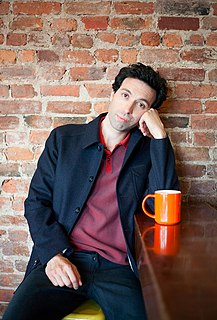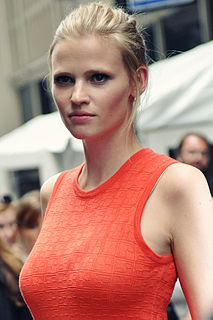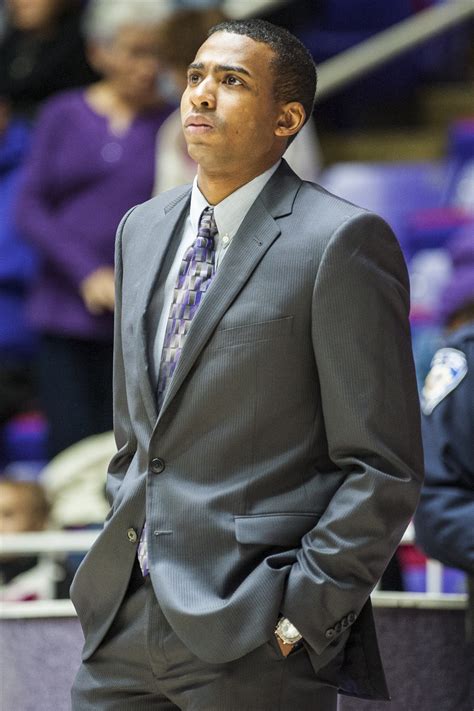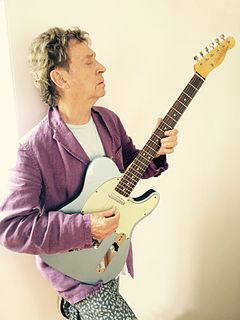A Quote by Bob Colacello
Very few people actually saw Andy's films like Chelsea Girls where he filmed seven hours, ran it on two screens, where each scene was in a different room at the Chelsea Hotel with these people he called 'Superstars" who were basically super-exhibitionists - the guy in one room high on LSD talking about masturbation, Brigid Berlin in another room playing a lesbian and shooting up people with amphetamines right through their jeans, it was all real and they were really doing it (though Brigid is now a proper lady), but you know Andy really did pre-date reality TV.
Quote Topics
About
Actually
Amphetamines
Andy
Another
Basically
Berlin
Chelsea
Date
Did
Different
Doing
Each
Few
Few People
Films
Guy
High
Hotel
Hours
Jeans
Know
Lady
Like
Lsd
Masturbation
Now
People
Playing
Proper
Ran
Real
Reality
Reality TV
Really
Right
Room
Saw
Scene
Screens
Seven
Shooting
Shooting Up
Super
Superstars
Talking
Though
Through
TV
Two
Up
Very
Were
Related Quotes
The first exhibition that I used bright colours in painting the room was at a gallery in Paris, and there were seven rooms in the gallery. It was very nice gallery, not very big rooms, around the courtyard, it was a very French space. So I painted each room in different colour. When people came to the exhibition, I saw they came with a smile. Everybody smiles - this is something I never saw in my work before.
Most of the people that I've worked with when shooting films that I really respect, there is a point which you do become obsessed in a good way. And because it's a collaborative medium, you're not by yourself in a room tearing your hair out, you're in a room with a bunch of people. And we're all tearing our hairs out, or trying to get something right, or caring deeply about something. But that's fun.
There's so many variables in comedy. Comedy is not this thing that's a performance like a play. It's really an interaction with every single person in the room. And if there's a weirdness in the room for any people, be it something the comedians did at the top of the set or be it the mixture of the people isn't right, something can go awry. So it's really great to see you proven wrong about someone.
She left me the way people leave a hotel room. A hotel room is a place to be when you are doing something else. Of itself it is of no consequence to one's major scheme. A hotel room is convenient. But its convenience is limited to the time you need it while you are in that particular town on that particular business; you hope it is comfortable, but prefer, rather, that it be anoymous. It is not, after all, where you live.
I really like the Chris-R scene and of course the "you are tearing me apart Lisa" scene. The reason I love the Chris-R scene is because we worked really hard to finish it. It's not just that though, it brings people together. Everyone is one the roof together by the end of the scene. You see the perspectives of the different characters. I feel like with all the connections in this scene that the room connects the entire world
Along with reading as much as I could about Andy, several of the real folks came in besides Andy [Hertzfeld] - Joanna Hoffman and John Sculley and Steve Wozniak all came in and spoke with us - so we had the advent of being around the real people and feeling their spirit, in talking to them about what Steve was like, what their relationship was like, and how they felt about each other.
[T]hese last few days where I've moped around damn near depressed for real, because of people who do not exist. Not really. I can buy them Christmas presents, but there is no way to send them. Sometimes I feel like I should be able to walk into the next room and there they will be, but they won't. These people do not exisit as flesh and blood, but there are different kinds of reality, and there are days when imagination feels very, very real.
I mean when the book first came out it was not a bestseller, but it got good reviews and at that point I was done writing about Andy, done talking about Andy....but now, I kind of love it. All these smart, attractive young people think I'm cool! So here I am a guy in his sixties with all of these interesting friends in their twenties. It's very stimulating and keeps me very much in the present.




































